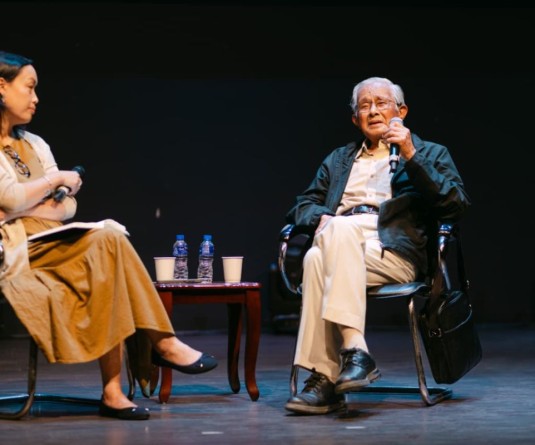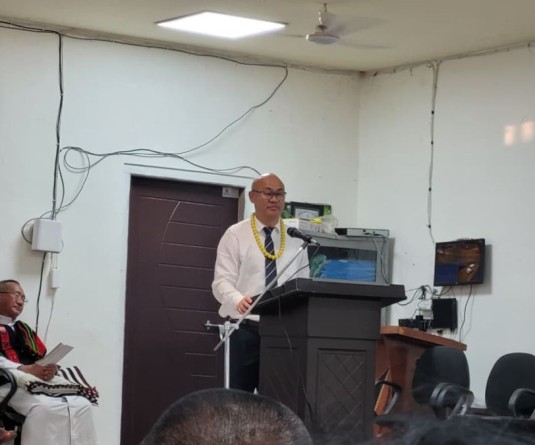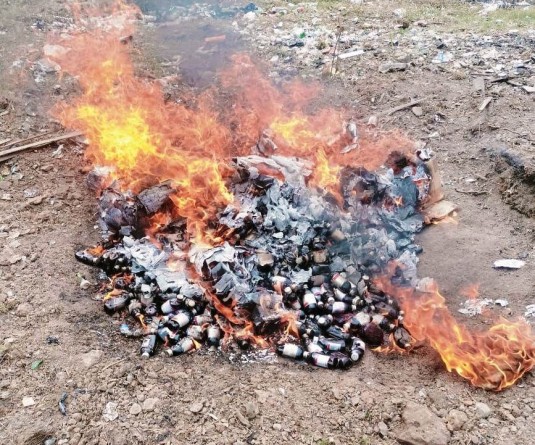
NNC commemorates 57th Indo-Naga Ceasefire Day
Dimapur, September 5 (MExN): President of the Naga National Council (NNC) Thinoselie M Keyho on Saturday highlighted the need for a solution to be successfully arrived at between the Nagas and the Government of India (GoI).
Extending greetings on the 57th Indo-Naga Ceasefire Day on September 6, Keyho termed it a ‘marvelously gigantic achievement’ for the Naga National Movement to begin from zero and quickly gather momentum and substance, to finally enter into the Ceasefire Agreement with the GoI on September 6, 1964.
This deed of history, Keyho said, directly proves that the GoI “had recognised the legal and ethical identity of the Federal Republic Government of Nagaland (FGN).”
Blaming the GoI for allowing the peace talks to fail, the NNC President accused India of pursuing the path of ‘extreme degree of pride and arrogance…’
He maintained that “Natural Law demands that India must surely deal directly with NNC/FGN who is the prime factor in this epic conflict.” But instead, entered into the 16 points agreement with a group of ‘quasi-Nagas’ and granted them the State of Nagaland, Keyho wrote.
He said that only after the creation of the state of Nagaland, India “came seeking for talks with the NNC/FGN” and likened it to “putting the cart before the horse.”
Despite that, the NNC/FGN undertook the process of ceasefire and Peace Talks hoping that India was ready to make amends, the NNC President wrote.
Keyho, who was a member of the Naga Delegation in the Peace Talk along with Zashei Huire and Isak C Swu, said that he would disclose and declare his version of how the talks failed.
Pointing to the GoI’s appointment of Y D Gundevia as the Indian Chief Delegate of the Peace Mission as a ‘wrong choice’, Keyho narrated instances of fallouts with him.
The NNC President questioned the purpose of Gundevia being sent. “It was all because of him that the Peace Talk failed miserably and the Peace Mission’s Proposal went barren,” Keyho alleged. Although the Talk had technically failed, in order to accord it a dignified send off, the same was “upgraded” to the Prime Ministerial level and met its natural death, he added.
If the GoI rightly recognizes the Naga issue to be political in nature and essence, wise and seasoned politicians and/or veteran statesmen should be appointed to tackle the matter, the NNC President said.
“Bureaucrats of any cadre and calibre are most singularly unsuitable for the job on hand,” he opined.
He asserted the need for India to ‘honestly and sincerely right’ the wrongs and to adopt and pursue the right attitude.
“That’s the one and only possible ‘starting point’,” Keyho said.
Highlighting differences in Naga and India policies, the NNC President said that “As matters stand now, there simply is no meeting point.”
“But a solution must surely be found and successfully arrived at,” he added.
‘Time to fight through peaceful means’
On the 57th Indo-Naga Ceasefire Day, W Shapwon, Joint Secretary of the NNC called for ‘fighting through peaceful means.’
He said that the day was a result of the rejection of the ‘puppet state’ under the Indian Union in 1963.
Recounting the events that led to the signing of the agreement, Shapwon said, “As the NNC and FGN rejected the statehood and continued resistant war against India, the then Prime Minister of India Jawaharlal Nehru realized granting a state to the Nagas was not a solution to the Indo-Naga conflict, and therefore relented to sign a ceasefire agreement with the FGN in 1964.”
The agreement was signed on May 25, 1964 at Sakraba village in Chakhesang Region. But it came into effect on September 6, 1964.
Following the international ceasefire agreement, six rounds of talks at Prime Ministerial level of the two nations were held in New Delhi, he said.
He stated that the 9-Point Agreement or ten years agreement on June 26, 1947 and the Ceasefire agreement in 1964 were the two documents that the NNC and FGN had officially signed with the GoI though both were abrogated unilaterally by the GoI.
“..The NNC and FGN signed no agreement to surrender the sovereignty of Nagaland to any foreign nation in the last 66 years war with neo-colonialists,” he said.
Nagas, therefore have the right to “speak as a sovereign and independent nation and has a unique history among the Asian countries,” Shapwon asserted.
He expressed happiness at the celebration of the 7th Nagaland Independence Day by leaders abroad as well as NGOs and Naga scholars.
“Now is the right time for us to fight against our enemy with the might of historical facts and truth through peaceful means,” he added.






